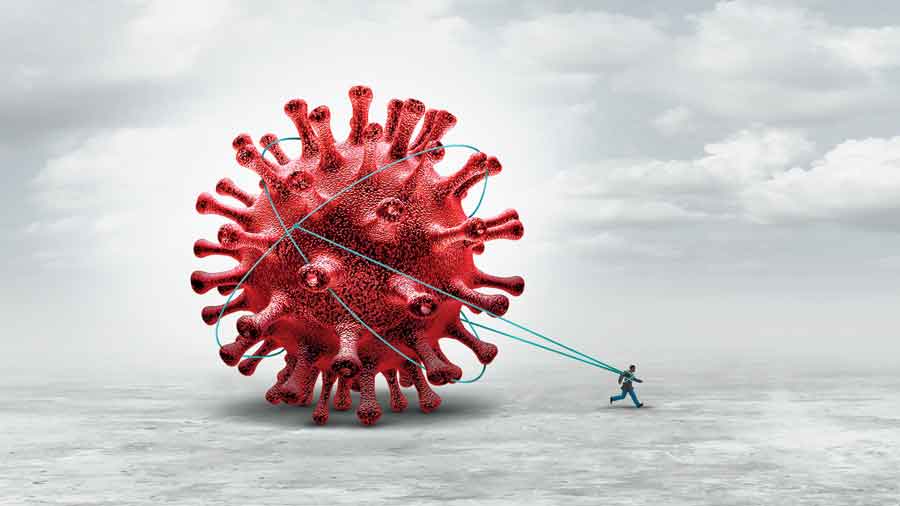The Covid-19 pandemic continues to be a “global health emergency” and the deadly virus will remain a “permanently established pathogen” in humans and animals for the foreseeable future, according to the World Health Organisation.
WHO Director-General Tedros Adhanom Ghebreyesus said on Monday that as the world enters the fourth year of the pandemic, there is no doubt that “we are in a far better situation now” than a year ago when the Omicron wave was at its peak. He said Covid-19 continues to be a health emergency.
“Three years ago today, I declared a public health emergency of international concern over the global spread of COVID-19 – the highest level of alarm under the International Health Regulations, and for the moment, the only level of alarm,” Ghebreyesus said He said he has been advised by the Emergency Committee for coronavirus disease that “COVID-19 remains a global health emergency”.
The Committee acknowledged that the COVID-19 pandemic may be approaching an “inflexion point”.
“Achieving higher levels of population immunity globally, either through infection and/or vaccination, may limit the impact of SARS-CoV-2 on morbidity and mortality, but there is little doubt that this virus will remain a permanently established pathogen in humans and animals for the foreseeable future,” it said.
It noted that while eliminating the virus from human and animal reservoirs is highly unlikely, mitigation of its devastating impact on morbidity and mortality is achievable and should continue to be a “prioritised goal”.
Ghebreyesus cautioned that since the beginning of December, weekly reported deaths have been rising and in the past eight weeks, more than 170,000 people have lost their lives to COVID-19.
"We can’t control the virus, but we can do more to address the vulnerabilities in populations and health systems,” he said, adding that this means vaccinating 100 per cent of the most at-risk groups.
It also means increasing access to testing and early antiviral use; taking context-specific measures when there is a surge in cases; and maintaining and expanding laboratory networks.
He also called for fighting misinformation relating to the virus and vaccinations. The novel coronavirus was first reported in Wuhan, China, on December 31, 2019. Globally, there have been more than 752.5 million confirmed cases of COVID-19, including 6.8 million deaths till date, according to WHO.
So far, 13.1 billion doses of COVID-19 vaccines have been administered globally, with 89 per cent of health workers and 81 per cent of older adults (over 60 years) having completed the primary series.
The WHO chief said he remains hopeful that in the coming year, the world will transition to a new phase in which hospitalisations and deaths are reduced to the lowest possible level, and health systems are able to manage Covid-19 in an integrated and sustainable way.
“Vaccination will remain an essential part of our approach. We are now working to determine the most effective mechanism for advising Member States and manufacturers on vaccine composition and vaccination frequency,” he said.
Except for the headline, this story has not been edited by The Telegraph Online staff and has been published from a syndicated feed.











